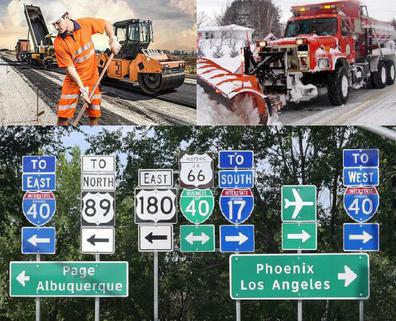Funding for Public Transit:
$168 billion is spent on highways every year
If you don't want to pay for our trains, then we don't want to pay for your car
Treehugger
Ilana Strauss, February 6, 2019
https://www.treehugger.com/public-transportation/why-public-transit-shouldnt-have-pay-itself.html
A lot of people complain about having to pay for public transit.
"I don't take buses," my friends have said. "Why should I get taxed for them? If public transit can't pay for itself, then it's clearly not providing enough value to society. It shouldn't exist."
My car-owning friends may mean well, but they're being a tad hypocritical.
People may buy their own cars. But I don't know any drivers who buy their own cement trucks and pave their own streets. They forget the government heavily subsidizes their driving habits by building highways and other roads. State and local governments spend $168 billion on highways every year. Car owners may pay for buses, but bus riders also pay for cars.
Public transit helps the economy. It allows more people to get to work, and to work in more areas of the city. As roads become more congested, public transit actually makes it easier to get around faster when more people travel. Not to mention that buses and trains have a massive positive impact on the environment. It takes a lot less fuel to transport a hundred people in one vehicle than to move a hundred people in a hundred vehicles.
And this doesn't just apply to cities. Americans who think rural folks must rely solely on cars have never traveled outside the country. In most places, cars are a luxury, one that many (particularly rural folk) can't afford.
So other countries have plenty of public transit in rural areas. Lots of countries have efficient bus and rail systems that make it easy to move between municipalities. In Israel, I could catch a bus from Jerusalem to Tel Aviv every 10 to 20 minutes. In Ecuador, I could travel from the heart of Quito to a small village in the mountains every hour. But in the U.S., I have to book an expensive bus or train ticket well in advance to move from an urban center to another city or town.
And if anything, it's worse within American towns. In the U.S., small towns are often spread out. People need cars to get from their houses to neighbors and stores. But in many other countries, small towns are much more compact. In Morocco, for instance, I could walk from one side of a village to the other in 15 minutes. People there got around town on foot, not in cars. They'd pass each other on the way, getting to know their neighbors and taking spontaneous tea breaks with people they crossed on the street. Getting around was faster, easier and much more social.
As much as libertarians hate to admit it, transportation is a collective activity, no matter how you cut it. Cars, buses and trains all rely on large pieces of infrastructure used by millions of strangers.
The U.S.'s car-based urban design and poor public transit systems aren't the only way. There are other options, many of them much more environmentally-friendly and less expensive.
for transit dependent riders
